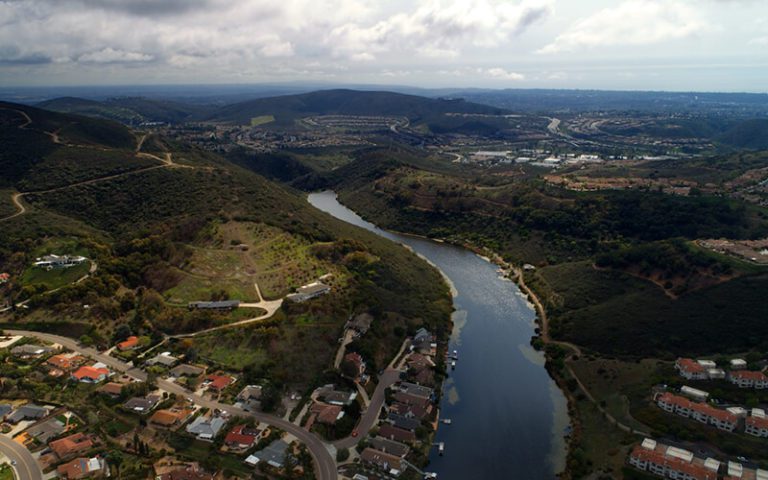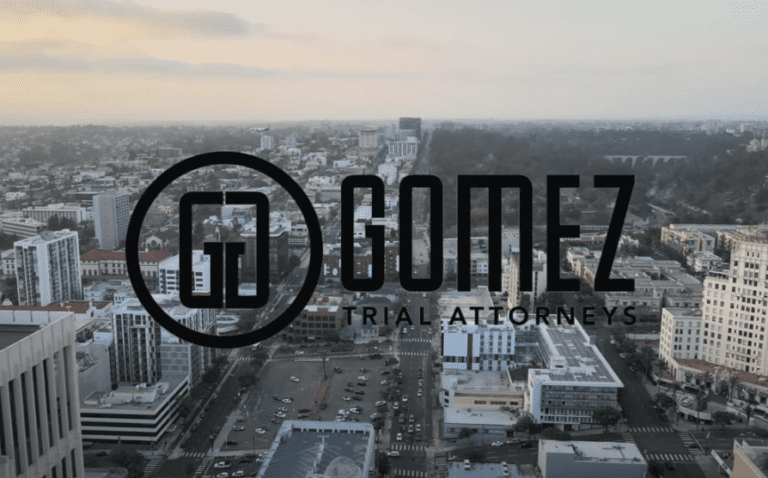Most people have experienced irritation or frustration at some point while driving: dealing with drivers who make foolish errors, struggling through traffic jams, or watching problems on the road can all create unavoidable delays that make it nearly impossible to drive stress-free. More than 45 percent of people admit to yelling in their vehicles when they become frustrated. Others may honk their horns or beat on the steering wheel as an expression of frustration. For some people, however, that natural tension and frustration go a step further and turn into road rage. If you have been involved in a road rage accident or suspect the person who hit you caused you accident was driving aggressively then contact the auto accident attorneys at Gomez Trial Attorneys.
What Happens When Drivers Rage
Drivers who lose their tempers on the road frequently behave dangerously or choose to drive aggressively. In many cases, frustrated drivers actually believe that aggressive driving may accomplish something: Getting them to their destinations faster, burning off some of the tension of dealing with the problems in front of them, or getting back at a driver who they think behaved inappropriately.
Unfortunately, aggressive driving, or the type of driving that occurs with road rage, causes around 66 percent of traffic fatalities. Aggressive drivers may:
- Speed. Often, during an episode of road rage, a driver will choose to speed. He or she may try to make up lost time on the road due to slow drivers or traffic jams, attempt to catch up to a driver he or she feels has acted inappropriately, or even try to speed to get away from a driver who appears to cause problems on the road. Speeding, however, can substantially increase accident risk: for every 1 percent that a driver’s speed increases, accident risk goes up by 2 percent. Since anger can also slow reflexes and prevent raging drivers from reacting appropriately, speeding due to road rage can pose serious hazards to everyone on the road.
- Ignore traffic signs and signals. Aggressive, raging drivers may blow through red lights and stop signs, ignore yield signs, and fail to pay proper precautions in construction zones. Ignoring these traffic signals makes drivers very unpredictable, which means that other drivers may struggle to react appropriately to such actions on the road. Not only that, drivers who ignore traffic signs and signals may unwittingly crash into another vehicle.
- Weaving in and out of traffic. Many raging drivers will attempt to gain seconds back on their drive, even when impractical. They may weave in and out of traffic, changing lanes abruptly and cutting off other drivers. Sometimes, raging drivers may use this method to catch up to a vehicle with a driver that they feel did something wrong. Others may simply get in a hurry and, raging about traffic jams and delays, behave aggressively and dangerously.
- Attempting to block another vehicle. Some drivers, when they feel that another driver wronged them on the road, will attempt to obstruct that driver. They might, for example, try to block off a lane so the driver cannot get over, even with an exit coming up on the interstate or a turn getting close on the highway. This can result in dangerous driving decisions on the part of the other driver as he or she struggles to safely navigate the road.
- Tailgate. In general, drivers need several seconds to come to a stop after the car in front of them brakes. Tailgating often removes that warning cushion, making it very difficult for the rear driver to stop in time. Tailgating drivers often cause rear-end collisions, especially in tight traffic or when traffic slows abruptly.
- Trying to run someone off the road. Raging enough to attempt to harm someone through actions like running the car off the road occurs more rarely than other road rage events, but it does happen. Angry drivers may attempt to push the vehicle that they feel has wronged them off the road directly or ram into it with their vehicle, damaging both vehicles and often causing injury to the occupants.
- Following another driver as he or she gets out of the car. Some raging drivers, not content to rage in their vehicles, may follow other drivers as they exit their vehicles and try to issue further threats. Some may pull out a weapon or offer threats to drivers when they get out of their vehicles.
What Should You Do If You Encounter a Raging Driver?
Encountering a raging driver on the road leaves many individuals disconcerted and worried. How should you handle raging drivers around you? How does the presence of a raging driver change how you need to drive? Try some of the following strategies.
- Continue to follow the rules of the road. As much as possible, continue to drive safely. Do not attempt to speed, either to get away from a raging driver or to catch up to one. Remember not to lose your own temper, even though watching another driver’s rage may make you more frustrated. Instead, maintain a safe speed and follow traffic signals. Continue to yield to pedestrians, leave plenty of space for other vehicles, and take care of the other drivers around you.
- Try to behave courteously. Common courtesy, from letting a driver over when needed to maintaining the same speed as everyone else on the road—or getting over in the right lane if you cannot safely maintain those speeds—can go a long way toward preventing rage in other drivers.
- Pull off the road, if needed. If a raging driver seems determined to target you specifically, including by pushing you off the road, pulling over in front of you repeatedly, or tailgating, pull off the road. Look for a safe, public location: a gas station; a busy grocery store parking lot; or even the parking lot of a police station, if you happen to be close. Do not exit your vehicle if the driver follows you. Often, raging drivers will continue with their planned routes and get out of your way, making it possible for you to safely proceed to your destination. If you do need to pull off the road to avoid a raging driver, consider going to a public place, rather than going straight home—especially if you do not have anyone at home to meet you. You may not want to give away your address or put yourself in an isolated location with a raging individual.
- Call the police, if needed. If you notice a driver behaving particularly aggressively, or if the driver follows you to a safe location and gets out of the car to continue to harass you, call the police. The police will come to the scene, judge the behavior of the raging driver, and issue any needed arrest or citations. If police officers observe symptoms of drunkenness, they may choose to arrest the raging driver at the scene.
- Do not engage with the other driver. Whether the other driver follows you to your safe location or simply rides beside you on the road, do not engage with that driver. Ignore the urge to shout back or make obscene gestures, which could simply contribute to and escalate the tension of the situation. Instead, ignore the raging driver as best you can.
Avoiding Road Rage in Yourself
If you notice yourself often getting angry behind the wheel, try some of the following strategies to decrease the risk that you will start raging or cause an accident.
- Leave plenty of time to reach your destination. Many people find road rage triggered by the idea that the conditions on the road, from slow drivers to construction to emergency vehicles, will make them late. Being late, especially to work or to an appointment, can trigger high levels of stress in many drivers, significantly increasing the likelihood of a road rage episode. Instead, leave yourself plenty of time for your drive. Leave early, if needed, especially if you know accidents or delays occur commonly on your route. By leaving a little early, you can significantly increase the odds that you will safely reach your destination on time, without losing your temper.
- Play soothing music in the car. Skip the aggressive, screaming metal music or listening to a show on the radio that often gets you riled up, especially if you notice that a specific radio host seems more likely to share content that sets off your temper. Instead, choose something low and soothing that will help you lose yourself in the music, rather than stressing about potential problems on the road.
- Follow the rules of the road. Commit to following all traffic laws in your area, even if that means stopping for excessive periods of time at a stoplight known to last for a long time or slowing down significantly in construction areas. Challenge yourself to maintain the speed limit or to avoid tailgating other drivers. Ultimately, those rules exist to keep you and others on the road safe. When you ignore them, even in frustration, you may pose a higher hazard to others around you.
- Pay careful attention to other drivers around you. Expect other drivers to make mistakes. Just like you occasionally make foolish errors due to inattention or one mistaken moment, other drivers may do the same. When you accept that behavior as normal and assume other drivers, just like you, try their best to stay safe on the road, you will significantly decrease your odds of getting angry on the road.
- Avoid using hand gestures or honking your horn, if possible. Often, simply giving expression to your road rage in one way makes you more likely to do it again in the future, especially if your expression of rage does not cause harm immediately. Honking your horn or using rude hand gestures, however, should not be used as a method for reducing your stress. These actions can trigger rage in other drivers, which may, in turn, make those drivers more likely to engage in dangerous behaviors. Ultimately, that increases your risk of getting into an accident.
What Happens When Road Rage Causes an Accident?
Road rage can cause an accident in the blink of an eye. Many raging behaviors substantially increase accident risk and make it harder for other drivers on the road to keep themselves and their passengers safe. When road rage leads to an accident, keep the following things in mind:
- Drivers or passengers not responsible for the accident deserve compensation. The raging behavior does not change the compensation that the other drivers and their passengers deserve for their injuries following an accident. It may, however, lead to further legal repercussions for the raging driver, including the need for anger management therapy or driver’s license revocation.
- Raging behaviors can increase the severity of accidents. Even if road rage does not cause an accident directly, it can make the situation worse for everyone involved. Excessive rates of speed, for example, can substantially increase the severity of injuries received by people in both vehicles during an accident, since the increased speed also increases the force of the accident.

- You may need to contact an attorney if you suffered injuries in a road rage accident. If you suffered serious injuries in a road rage accident, contact an attorney as soon as possible for help filing your claim. An attorney can work with you to help you better understand how much compensation you should seek as well as how the other driver’s road rage caused and/or contributed to your accident.
Road rage presents a serious danger to everyone on the road: both the raging driver and others sharing the road. By taking steps to avoid road rage, you can decrease your risk of an accident and make the roads safer for everyone.
Gomez Trial Attorneys
655 West Broadway
Ste1700
San Diego, CA 92101
[619]-237-3490







